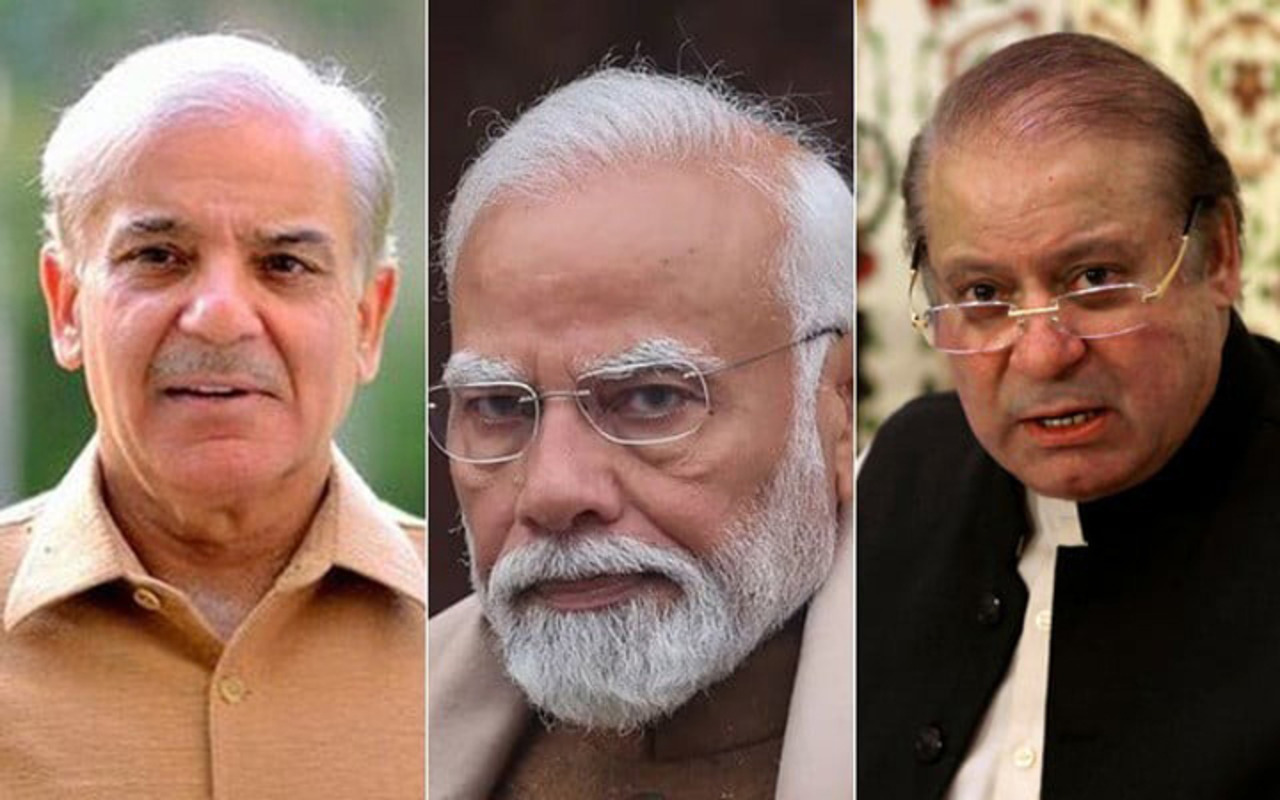Islamabad/New Delhi:
In a significant yet cautious diplomatic exchange, Pakistani leaders extended their congratulations to Narendra Modi as he commenced his third term as Prime Minister of India. The exchange, which took place on Monday, saw Pakistani Prime Minister Shehbaz Sharif and former Prime Minister Nawaz Sharif sending their felicitations to Mr. Modi, who responded with brief but polite acknowledgements.
Prime Minister Shehbaz Sharif’s message was succinct, offering congratulations, to which Prime Minister Modi replied with an equally brief “thank you.” However, the message from Nawaz Sharif, the leader of the Pakistan Muslim League-Nawaz (PML-N) and a three-time former premier, was notably warmer and more detailed. Addressing “Modi Ji” in a personal tone, Nawaz Sharif expressed his hopes for a future where hope replaces hate in the subcontinent. Mr. Modi, in his response, emphasized the importance of security, highlighting it twice in his message.
Despite these cordial exchanges, analysts caution against expecting significant changes in the bilateral relations under Modi’s third term. This sentiment was evident during the Indian Prime Minister’s oath-taking ceremony on Sunday, where nearly all South Asian leaders were present, except for Pakistan’s Prime Minister. This absence was a stark contrast to a decade ago when Nawaz Sharif attended Modi’s first oath-taking ceremony, signaling a more optimistic era in Indo-Pak relations.
The political landscape has since shifted dramatically. While the messages exchanged between the leaders offer a glimmer of hope, they also underline the prevailing skepticism about the prospects for improved relations. The recurring emphasis on security from Mr. Modi reflects a persistent concern for India, which has long accused Pakistan of supporting cross-border militancy. This was reiterated by the Indian foreign minister on Tuesday, who stated that India seeks a “solution” to this issue.
However, the credibility of New Delhi’s stance is questioned by some, especially in light of recent revelations that Indian intelligence was allegedly running a network of assassins within Pakistan. This accusation underscores the complex and often adversarial nature of Indo-Pak relations.
The future trajectory of these relations remains uncertain. Both nations face a choice: to continue with adversarial policies or to engage in dialogue to address longstanding issues. These include security concerns, water disputes, and the contentious Kashmir issue. While the path to reconciliation is fraught with challenges, it is not insurmountable if both sides demonstrate a genuine willingness to engage in meaningful dialogue.
Small, confidence-building measures could pave the way for improved relations. Restoring full diplomatic ties and initiating discreet back-channel communications could serve as initial steps towards normalization. In a world increasingly marred by conflict, South Asia’s two largest powers have a unique opportunity to chart a new course towards peace.
While immediate breakthroughs are unlikely, the hope remains that both governments will recognize the potential benefits of a peaceful and cooperative relationship. As the weeks and months unfold, the actions of the Modi administration will reveal whether it is inclined to pursue a new direction in its dealings with Pakistan, or continue on its current path. The world watches with cautious optimism, hoping for a dawn of peace in the subcontinent.
